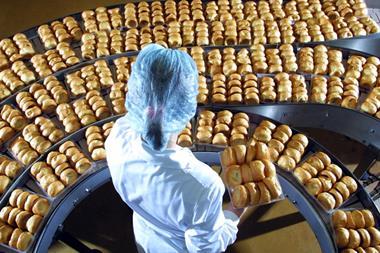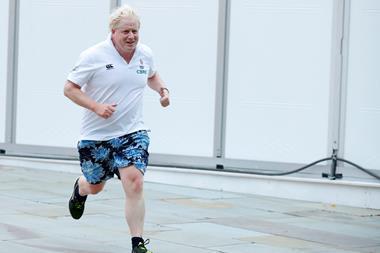If National Food Strategy reviewer Henry Dimbleby is to be believed, he was about to “press send” on two of his key recommendations when he found out someone else got there first.
The Leon founder had made a case for a sweeping ban on HFSS promotions, by volume and in placement in areas such as aisle ends.
He was also convinced it was time to introduce a 9pm watershed on HFSS TV ads, having come to the conclusion that arguments of a disastrous commercial loss to advertising revenue had been overblown.
According to Dimbleby, he only found out at the last minute that another man looking to trim waistlines (including his own) had “stolen his thunder”.
Still, thunder stolen or not, two days after Boris Johnson’s obesity strategy we’ve got the first instalment of what Dimbleby admits is a food strategy whose nature has been completely altered by the backdrop of the Covid-19 outbreak.
Like Johnson’s plan, the report pulls no punches in its criticism of the food industry and its tactics. In fact, he told The Grocer today his attitude to the industry had hardened since Michael Gove gave him the job, in the face of what he saw as intransigence from suppliers and retailers.
While Dimbleby has won supermarket support for some of his recommendations, including a scheme to provide free fruit & veg for thousands of poor children and adults, elsewhere the report is damning of the dirty tricks he claims are “rampant in the industry”, particularly on labelling.
In fact, Dimbleby went even further than the PM by lauding the success of the soft drinks levy, which he claimed showed how fiscal measures could lead to reformulation, rather than higher prices.
Read more:
-
Industry reacts as National Food Strategy report published
-
Obesity strategy: what are the key measures affecting food & drink?
-
The government must restrict both price promotions and marketing on HFSS foods
He told The Grocer one of his next moves would be to commission research from the Institute for Fiscal Studies, looking at how such taxes could be applied to new products and potentially even to whole new categories of nutrients, such as salt and fat.
So, either this is another example of the PM and his food policy advisor working in blissful isolation, or he is helpfully flying a kite for No 10.
Either way, it looks like we have not seen the back of the plans for a wider sugar tax, despite its conspicuous absence from Monday’s government strategy.
Despite the bold, and at times outspoken, nature of today’s report, Dimbleby has so far avoided too much criticism from within the industry.
As The Grocer revealed in November, he cleverly turned to a team of “free thinkers” including former Sainsbury’s boss Justin King (Mike Coupe is also quoted in support of more regulation) and Greggs CEO Roger Whiteside, to help come up with the list of big issues.
The more Dimbleby continues his attacks, of course, the more likely he is to become a resented figure.
Some are already smarting at his lack of recognition of the positive role played by the industry. There will be those that point to the comparative lack of criticism in his report for the high street food chains and takeaways that have arguably contributed more to the obesity crisis than Percy Pig.
Meanwhile, a “root and branch” review of the food system will have to wait until next year, with Dimbleby’s plans to consult widely with different sectors of the food industry understandably having taken a knock due to lockdown.
If it is to succeed, however, the strategy will need major buy in and resourcing – from both government and industry.
As Dimbleby says, Covid-19 has reset the nation’s food industry. Whether he can help reset its approach to obesity depends on how well he manages to keep both sides on board.

























No comments yet